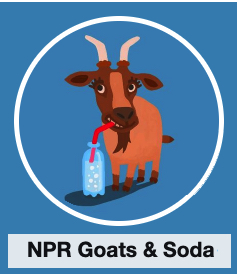
I am a HUGE fan of m NPR’s Goats & Soda program. This is an excerpt from a recent article:
In 1969, volunteer teams of doctors and nurses from a U.S. charity called Interplast began flying to poor countries to do reconstructive surgery. They operated on children with cleft lips, cleft palates or burn scars so thick their limbs were immobilized. It sounded like a great idea. The team members donated their time, paid for their travel and lodging and sometimes their supplies, and got to do good…
Today, missions are sponsored by churches, universities and charities. There are for-profit missions as well that collect fees from volunteers, mostly students. A 2016 estimate put the annual cost of getting doctors and other health care workers to sites around the world at $3.7 billion, paid for by donors or health personnel themselves.
But today there’s some real soul-searching going on about this kind of fly-in. At conferences and in academic papers, health professionals are asking: Is this really the most effective way to provide health care to the developing world?
This article from NPR’s Goats & Soda program explores the ethics of this volunteering abroad practice. There are growing concerns about what happens when these volunteers leave, and there’s a lot of concern that the care they’re providing may not be culturally appropriate or even wanted by the people on the ground. Sociologist Judith Lasker,
Please read the article before commenting!
And if you are not following NPR’s Goats & Soda on Social media, you really, really need to be. I follow @GoadsandSoda on Twitter. It’s terrific for people that work in humanitarian interventions or development abroad, or want to understand them – but it’s also good for anyone involved in nonprofit work in their own countries to read. There are a lot of issues that bring up that are local to any charitable activity locally – not just internationally.
Update: This September 2019 article from the American Medical Association explores ethical implications of international medical volunteering, such as scope of practice, continuity of care, and erosion of local health systems, and offers a personal perspective from a related field.

If you have benefited from this blog or other parts of my web site and would like to support the time that went into researching information, developing material, preparing articles, updating pages, etc. (I receive no funding for this work), here is how you can help.
Also see:
- Medical Voluntourism Can Cause Serious Harm
- The harm of orphanage voluntourism (& wildlife voluntourism as well)
- Volunteers themselves speaking out about voluntourism
- J.K. Rowling speaks out against orphan tourism
- More Than Me scandal in Liberia: a lesson to all who “just want to help”
- Isn’t my good heart & desire enough to help abroad?
- “But I wanted to help POOR people…”
- Vanity Volunteering: all about the volunteer
- In defense of skills over passion
- Want to work internationally? Get involved locally.
- Is it really *impossible* to break into humanitarian work?
- Ideas for Creating Your Own Large-Scale Volunteering Activity
- How to Get a Job with the United Nations or Other International Humanitarian or Development Organization
